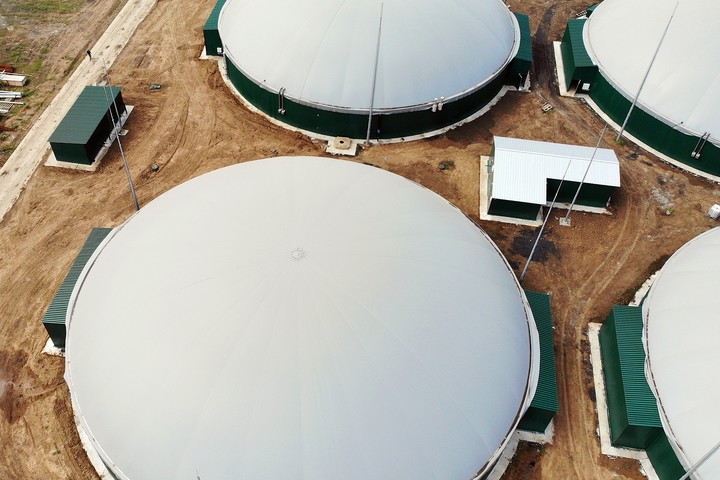12 Common Uses of Biogas in Different Industries
Biogas is an eco-friendly source of energy that comes from food scraps, animal waste, and other forms of organic waste. As this waste breaks down, it is produced into biogas which can then be used as any fuel source, such as to heat homes and buildings, to put in our vehicles to power them, and to harness electricity.
As it comes from organic waste, biogas is considered a renewable fuel. It occurs naturally but is also produced in an industrial context to convert it into fuel. Here are twelve different uses of biogas.
1. To Repurpose Organic Waste

We produce a lot of waste on Earth through everyday life. Large amounts of organic waste are made, and biogas can be purposed into something useful. Biogas upgrading equipment gives the energy source more versatility. The waste will already be produced, and as a fuel source, you maximize its value.
2. It Has Useful Byproducts

The production of biogas, naturally, produces certain byproducts. Among the byproducts is a dry, solid material that can be purposed as manure. While manure is not difficult to find, such a useful byproduct is noteworthy and furthers the argument that biogas is the ultimate fuel source.
3. Biogas Fuels Vehicles

From a fuel standpoint, the biggest use of biogas is how it can power vehicles. It can effectively replace gas, powering consumer vehicles, industrial and commercial machinery and larger vehicles.
4. To Save the Environment Harm

Biological matter decays. It produces gas. These would normally escape into our atmosphere and act as a pollutant. When biogas is produced, however, you input this gas into a cyclical and more sustainable process which helps the environment in more ways than one.
5. Biogas Is Used in Street Lighting

In many cities worldwide, street lights are powered by biogas rather effectively. In the past decade, biogas has begun to generate electricity for street lighting in countries from the UK to India.
Depending on how it’s produced, stored, and applied, Biogas may take some of the pressure off in areas that struggle with electricity needs.
6. Biogas Can Replace Natural Gas

Biogas can be cleaned and upgraded to a standard of natural gas. Biogas can then be converted into biomethane to do anything natural gas does, including cooking dinner, preparing food at the stove, and heating households and buildings.
Natural gas is a non-renewable fuel source, and biogas is renewable. This switch-out could be a revolutionary way to make essential fuel more environmentally sustainable.
7. Biogas Can Heat Homes Far and Wide

Biogas plants are already extremely common in China and the developing world. In China, millions of households are already powered through biogas, including in rural regions.
If biogas was to be adopted widely by governments in the West, it could prove to be an inexpensive way to heat homes without using damaging fuel sources. It can also produce different forms of heat, such as electric, water, and space heating.
8. Biogas Manages Agricultural Waste

A source of material for biogas is agricultural waste. Farms produce sizeable amounts of waste with nowhere to put it. Livestock, like humans, are always producing waste. By producing biogas through this waste, agricultural waste can be converted into the fuel put into the machinery that powers the farm.
9. Use It in Industrial Facilities

Industrial facilities require significant fuel to power them. From electricity grids to water treatment plants, municipal services, commercial buildings, and warehouses, they can all benefit from being powered by biogas. This energy source could prove a lot more affordable and is certainly more eco-friendly than most other fuel sources.
10. You Can Create Biogas Systems Very Easily

The beautiful thing about biogas, too, is that it can pull from not only animal manure but also plant material, food waste, and sewage. It is useful to derive usefulness from waste normally treated as purely waste.
11. Clean Up and Improve Waste Management Quality

Biogas can improve waste collection, processing, and management services. Many studies looking at existing biogas facilities find that they help with overflowing landfills. It also removes materials that would otherwise produce poisonous liquids that could leak into underground water.
Additionally, it enhances water quality, and improves garbage collection and hygiene. There are very few cons to biogas.
12. Process Food Waste in the Most Efficient Way Possible

The ton produces food waste daily, not only by households but also in the hospitality industry, restaurants and food service, food manufacturing byproducts, retailers and wholesalers, and more. Millions of food waste are produced yearly, which might otherwise be sent to the landfill. Biogas repurposes food waste and saves on limited landfill space, which is increasingly more valuable worldwide.
